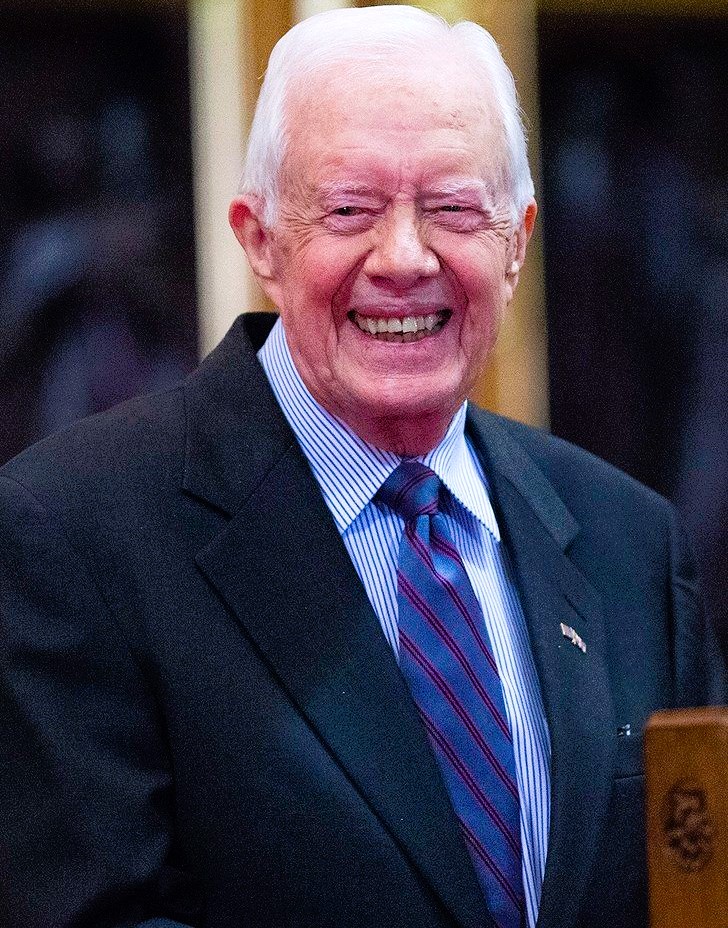
James Earl Carter Jr., known as Jimmy Carter, served as the 39th President of the United States from 1977 to 1981. Despite facing challenges during his presidency, Carter’s post-presidential career has solidified his legacy as a dedicated public servant, humanitarian, and advocate for peace and human rights.
Early Life and Political Rise,Jimmy Carter
Born on October 1, 1924, in Plains, Georgia, Jimmy Carter grew up in a modest farming family. His upbringing instilled in him a strong work ethic and deep sense of community. Carter attended the United States Naval Academy, graduating in 1946, and embarked on a career as a naval officer. However, following his father’s death in 1953, Carter returned to Georgia to take over the family peanut business, which he successfully expanded.
Carter’s interest in politics grew alongside his business career. He served on various local boards and councils before being elected to the Georgia State Senate in 1962. His reputation as a progressive reformer and a determined leader grew, leading to his election as Governor of Georgia in 1970. As governor, Carter was known for his efforts to reduce government waste and promote civil rights, setting the stage for his national political ambitions.
The 1976 Presidential Campaign.Jimmy Carter
In 1976, Carter announced his candidacy for President of the United States. Running as an outsider and a Washington reformer in the post-Watergate era, Carter promised honesty, integrity, and transparency in government. His campaign resonated with voters weary of political scandals and distrust in government. Carter’s grassroots approach and emphasis on human rights helped him secure the Democratic nomination and ultimately win the presidency, defeating incumbent Gerald Ford.
The Carter Presidency,Jimmy Carter
Carter’s presidency was marked by significant achievements and considerable challenges. Domestically, he focused on energy policy, creating the Department of Energy, and implementing measures to reduce the nation’s dependence on foreign oil. He also championed environmental conservation, establishing the Department of Education, and promoting social justice.
However, Carter’s administration faced economic difficulties, including high inflation, unemployment, and an energy crisis. His handling of these issues, coupled with a perception of ineffective leadership, led to criticism and waning public support.
On the international front, Carter achieved notable successes, particularly in the realm of diplomacy. He facilitated the historic Camp David Accords in 1978, brokering peace between Egypt and Israel, a landmark achievement in Middle Eastern politics. Carter also emphasized human rights in foreign policy, which influenced his decisions regarding relations with countries such as the Soviet Union and China.
Despite these successes, Carter’s presidency was overshadowed by the Iran Hostage Crisis. In 1979, Iranian militants seized the U.S. Embassy in Tehran, taking 52 American hostages. The crisis lasted 444 days and significantly impacted Carter’s presidency, contributing to his defeat in the 1980 election to Ronald Reagan.
Post-Presidential Career and Humanitarian Work,Jimmy Carter
Carter’s post-presidential career has been marked by an extraordinary commitment to humanitarian causes and global peace. In 1982, he established The Carter Center, a non-profit organization dedicated to advancing human rights, alleviating suffering, and promoting democratic governance worldwide. The Carter Center has played a pivotal role in disease eradication, election monitoring, and conflict resolution in many countries.
Carter has been an active advocate for Habitat for Humanity, a non-profit organization that builds affordable housing for those in need. His hands-on involvement in construction projects has inspired many and highlighted his dedication to service.
In 2002, Carter was awarded the Nobel Peace Prize for his efforts in finding peaceful solutions to international conflicts, advancing democracy and human rights, and promoting economic and social development. This prestigious recognition underscored the impact of his lifelong commitment to peace and justice.
Legacy
Jimmy Carter’s legacy extends far beyond his presidency. His dedication to human rights, democracy, and humanitarian work has left an indelible mark on the world. Carter’s ability to transcend the challenges of his presidency and focus on making a positive impact globally demonstrates his resilience and enduring commitment to service.
As a former president, Carter has shown that public service does not end after leaving office. His life and work continue to inspire future generations to strive for a better world, rooted in the principles of compassion, integrity, and justice.
